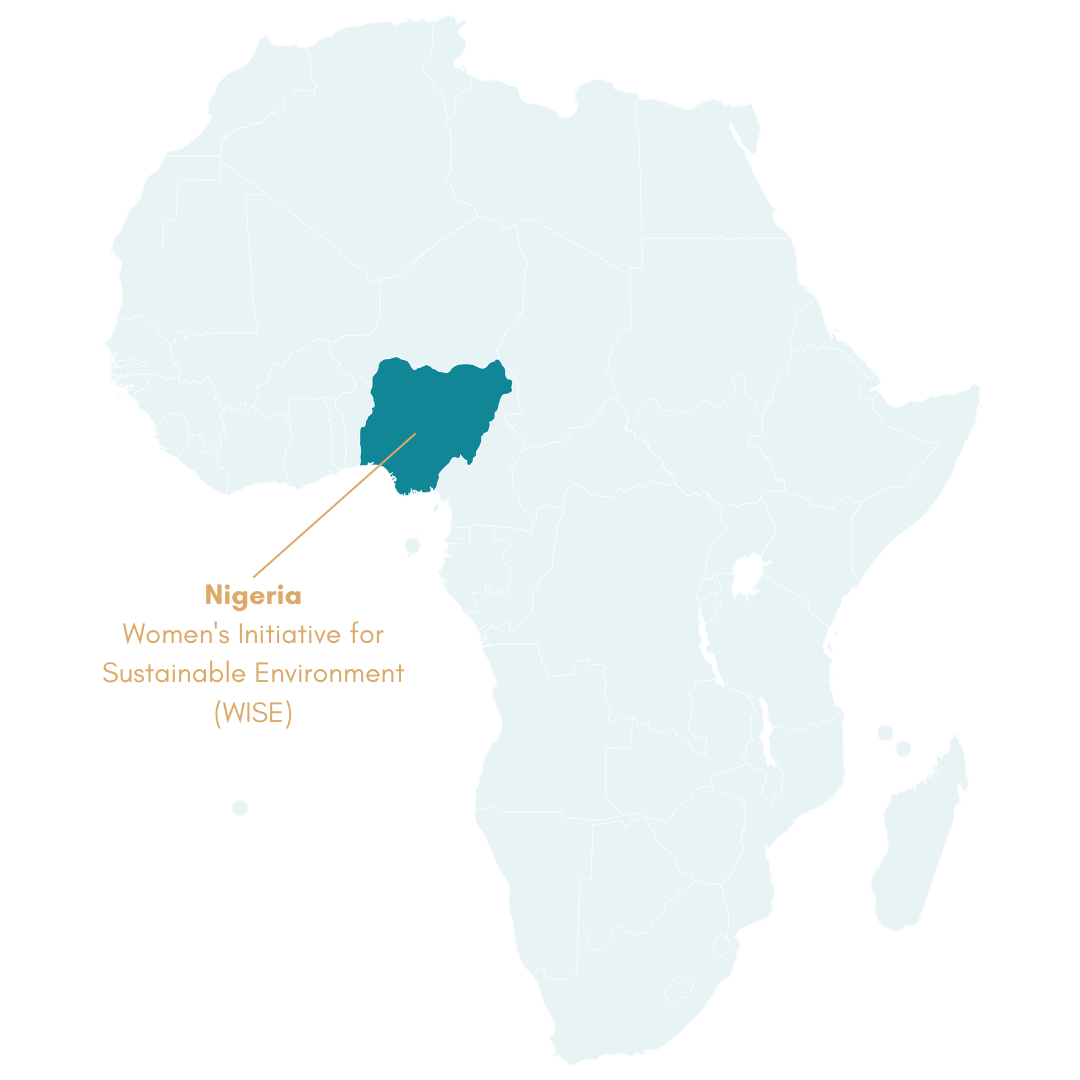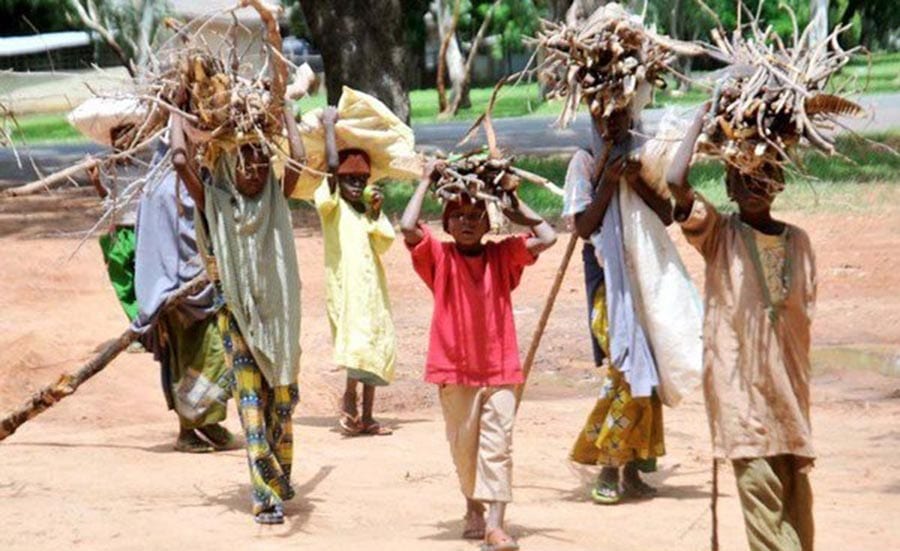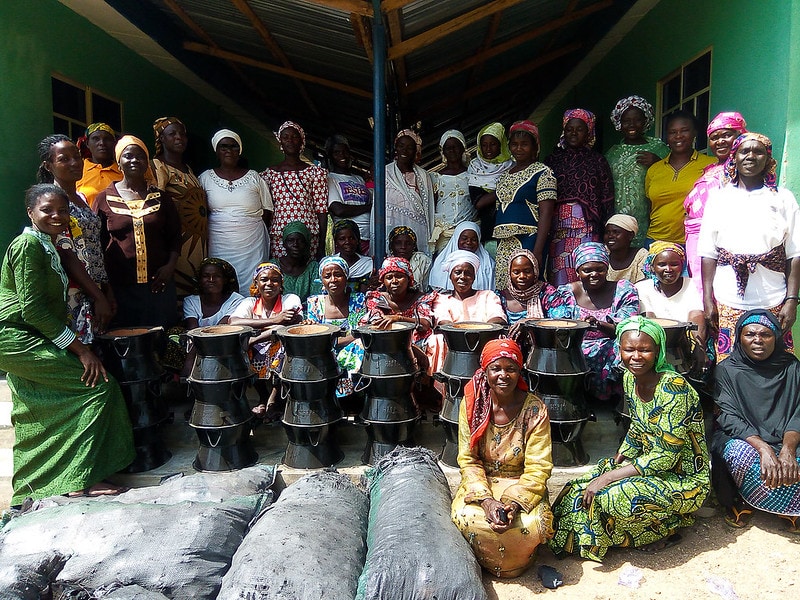OVER HALF OF THE WORLD'S 40 MOST CLIMATE-VULNERABLE COUNTRIES ARE IN AFRICA.
Climate crises impact women the most, especially through displacement and risk of exploitation. Despite being uniquely equipped to offer long-lasting, sustainable solutions to the complex, interrelated challenges they intimately know — including climate change, poverty, increased economic insecurity due to the COVID-19 pandemic, and gender-based violence — women in Nigeria face a range of obstacles that prevent them from accessing the financial resources needed to start or scale-up a business or launch other entrepreneurial efforts.
In Nigeria, WEA works in partnership with Women's Initiative for Women’s Initiative for Sustainable Environment (WISE) to equip grassroots leaders with seed capital and deliver the skills, information and knowledge they need to meaningfully contribute towards driving economic and environmental solutions. Our Green Microfinance program puts resources directly into the hands of grassroots women while building capacity and disbursing microcredit to scale their businesses focused on tree-planting, briquette-making, and distributing and advocating for the adoption of clean cookstoves.
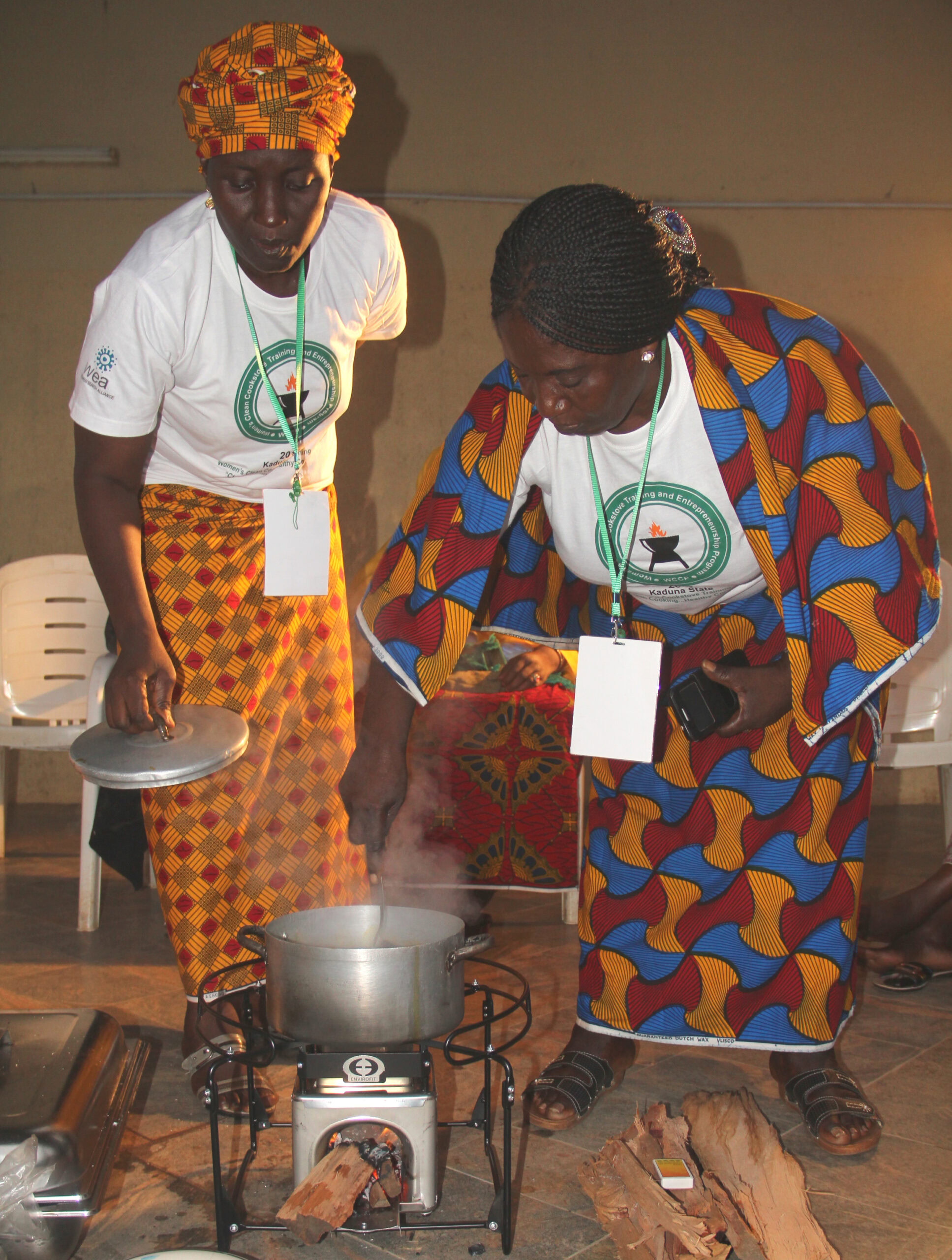
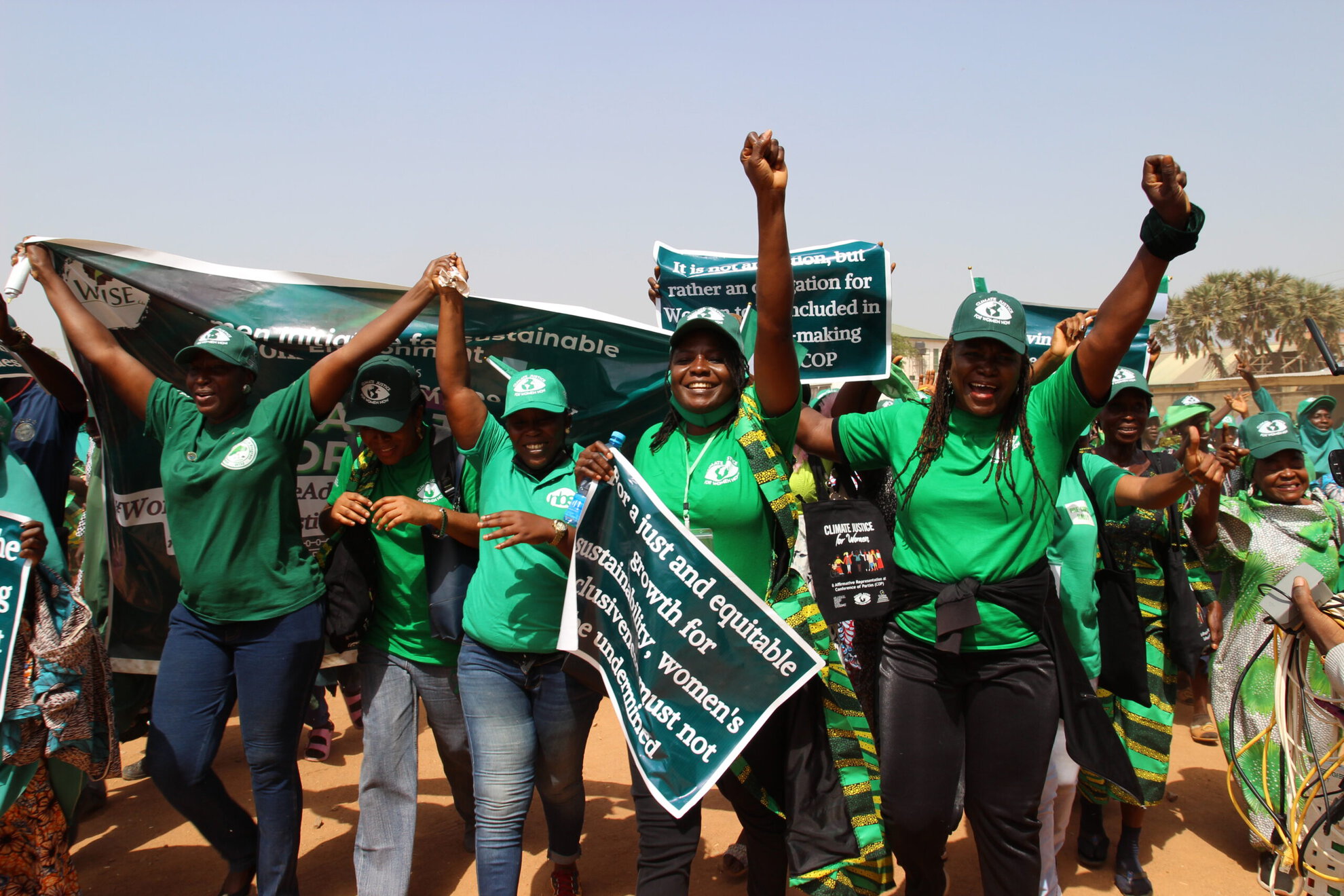
WHAT'S AT STAKE
Between 1990 and 2010, Nigeria lost 47.5% of its forest cover. High demand for firewood and charcoal for cooking drives deforestation, especially in rural areas and developing countries, and accounts for approximately half of illegally-removed timber around the world.
Over 98,000 women in Nigeria die every year due to inhalation of woodsmoke. According to the WHO, cooking breakfast, lunch and dinner over a woodstove exposes women to the equivalent of smoking between 3-20 pack of cigarettes per day.
Women constitute over 60% of the poorest people in Nigeria. The national financial inclusion rate there is 58.9% for women, compared to 67.4% for men – a stark gender gap.
![]()
Eco-Entrepreneurship: Growing women-led eco-enterprises that protect and restore ecosystems, increase income, improve health, and strengthen women’s leadership and wellbeing.
![]() Forest Conservation: Supporting holistic forest restoration and protection that focuses on regenerating depleted tropical forests, empowers local communities, and sequesters carbon.
Forest Conservation: Supporting holistic forest restoration and protection that focuses on regenerating depleted tropical forests, empowers local communities, and sequesters carbon.
![]() Climate Resilience: Strengthening community climate resilience through trainings and adoption of climate-smart technologies.
Climate Resilience: Strengthening community climate resilience through trainings and adoption of climate-smart technologies.

